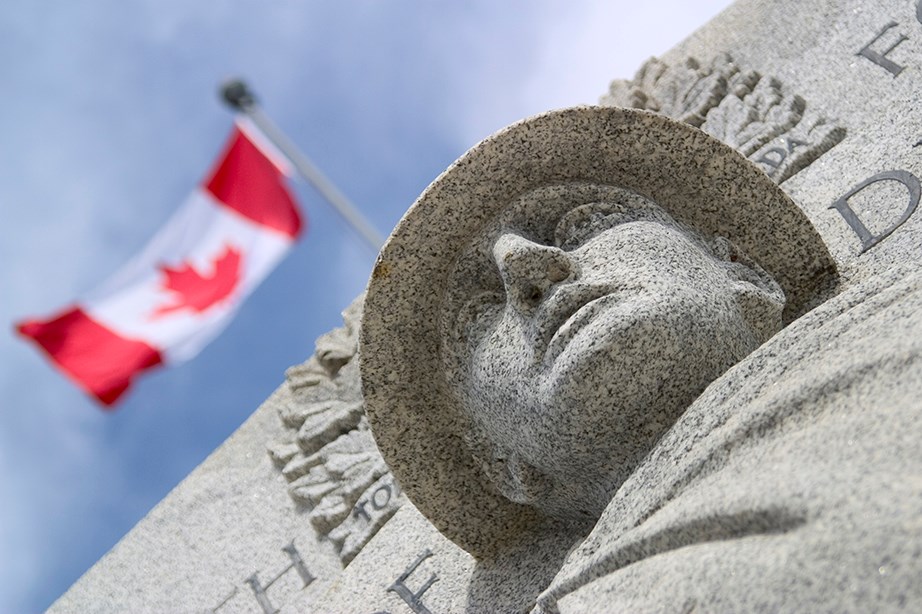Every November, at this time, we stop to recognize the sacrifices of those who have risked all to protect our country.
This Remembrance Day is, like everything else during the pandemic, not going to be the same, but it is as important now as any time in history to pause and think about those who serve and have served our country.
�鶹�����Royal Canadian Legion Branch 277 will still hold a pared-down, socially-distanced version of its yearly downtown ceremony. However, the annual �鶹�����Nation ceremony at Totem Hall is cancelled.
Thank you to all those �鶹�����veterans who served and those who are in service today.
. A day to specifically honour the contributions of Indigenous soldiers — estimated at 12,000 in the two world wars and the Korean War, according to Veterans Affairs.
Although Indigenous Peoples in Canada were exempt from conscription because they weren’t considered Canadian citizens, approximately 4,000 enlisted in the First World War.
On the battlefield, the men were equal, but when they came home, systemic racism continued.
These returning soldiers were not able to have a pint at the local Legion or pool hall with their brothers in arms, for example.
Bob Joseph writes in his book, 21 Things You May Not Know About the Indian Act: Helping Canadians Make Reconciliation with Indigenous Peoples a Reality, starting in 1884, it became illegal for First Nations people to purchase or consume alcohol or enter a licensed establishment where it was sold.
Because of this, when Indigenous soldiers returned home from war, they weren’t able to have a drink in public.
“Indian veterans were banned from the Legions that their fellow, non-Indian soldiers frequented,” writes Joseph.
This was the law under the Indian Act and the law denied the veterans far more than just camaraderie.
Legions have always been a wealth of information for veterans and this was also denied to First Nation vets who then relied on their “Indian Agent” to loop them in, according to Joseph.
At least 3,000 First Nations men and women enlisted in the Second World War, as well as an unknown number of Inuit, Métis, and other Indigenous people, says Veterans Affairs.
“The fact that so many Indigenous people served with distinction in [the Second World War] was one of the reasons that the federal government concluded that the time had come for Indigenous Peoples to have the full rights of citizenship after the war ended,” writes Joseph.
(
To learn more about the service of Indigenous soldiers, .
Lest we forget.




